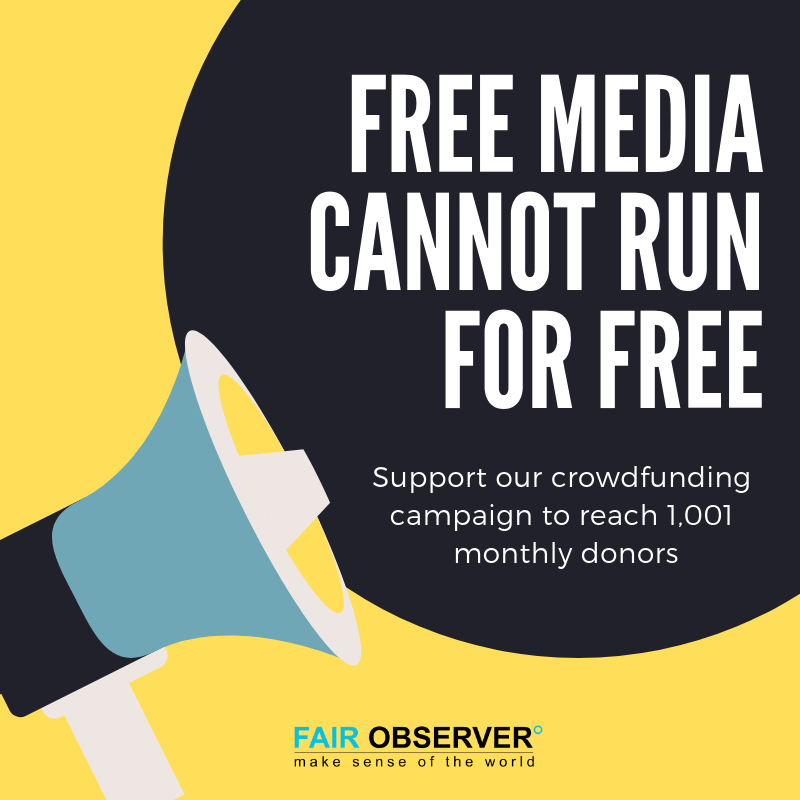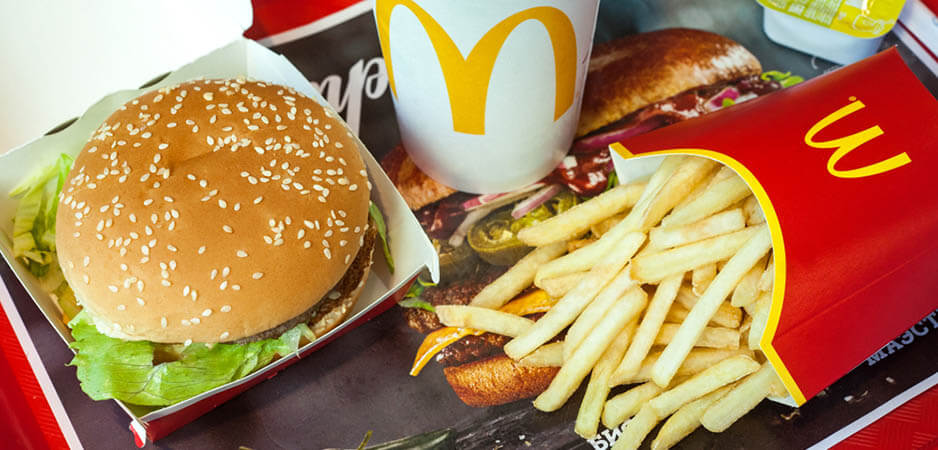McDonald’s built a successful business out of standardized products and strictly limited customer choice, but believes that choice is at the core of its culture.
The UK’s deputy leader of the Labour Party, Tom Watson, has made headlines by publicly denouncing McDonald’s for the latest version of its monopoly competition — a clear case of a brand using another brand (and cultural meme) to increase its traction. Watson objects to what he sees as a cheap ploy designed to incite people to consume more junk food in a society suffering increasingly from obesity and diabetes.
To defend itself, a McDonald’s spokesperson said: “Customer choice is at the heart of everything we do, including our popular Monopoly promotion.”
Here is today’s 3D definition:
Customer choice:
The basic freedom in capitalist societies that allows people to define themselves and even the deformity of their physical profiles and corporal health by what they pay to consume
Contextual note
In one short sentence defending its strategy, McDonald’s cites five culturally-loaded words intended to convince the public that they, and not Tom Watson, represent the true values of the economic and social culture we all live in. Those five words are “choice,” “heart,” “everything,” “popular” and “monopoly.” Let’s analyze how they work.
“Choice” means the opportunity to purchase what will either meet your needs, make you happy or, ideally, both. This constitutes the basis of prosperity in the consumer society. Clever marketing not only responds to needs, but cultivates and creates needs that never existed. For McDonald’s, the need to eat to sustain the body was so basic that the marketers could focus on cost — the savings from which can be directed to other needs, such as clothing — and speed, since in the US (where McDonald’s originated) “time is money.”
The appeal to happiness — which, since Thomas Jefferson’s Declaration of Independence, all Americans are invited to pursue — is contained within the feeling that the customer is meeting an essential need, saving time (cooking is a time-consuming activity) and money (“a penny saved is a penny earned”), all virtuous acts. Taste is secondary.
The “heart of everything we do” communicates the idea that McDonald’s isn’t just a business, but is a caring community serving the needs and requirements of the wider community. Everyone should know that the core value of every impersonal business — and McDonald’s is typically an impersonal business — is making a profit and nothing else: the company’s fiduciary duty to its shareholders. Calling that core value a “heart” humanizes it.
“Everything” has become an all-purpose trope in a culture that values homogenization and conformity. The Daily Devil’s Dictionary recently looked at CNN commentator Don Lemon’s abuse of the word “everything.” Assuming that any can easily morph into every has become a feature of cheap rhetoric in US culture, with its particular taste for hyperbole.
“Popular” points to the justification of any marketing initiative, as companies seek commitment from a maximum number of consumers.
The idea of popularity introduces the last word in the list: “monopoly.” The “Monopoly” that McDonald’s refers to — with a capital “M” — is the iconic board game first marketed in 1935. Mobilizing the recently invented marketing concept of gamification, McDonald’s has created its essentially non-interactive reward system while harnessing the brand of a world-famous competitive game to motivate its customers to consume more. It connects with the implicit motivational appeal of the board game: acquisitive greed and overconsumption. As per blogger Ciana O’Reilly, “Think of it like regular Monopoly, but with more prizes and the added benefit of getting delicious McDonald’s food.” This links with the idea of saving money (free food) and involves the notion of possibly getting more than the customer paid for (prizes).
 And, of course, in the background we are reminded that “monopoly” is more than a game. It represents the ideal of any (and therefore every) business in the US: to achieve something close to monopoly status, with a captive public. McDonald’s has competitors, of course, but it has achieved the modern ideal of global branding: becoming its own monopoly.
And, of course, in the background we are reminded that “monopoly” is more than a game. It represents the ideal of any (and therefore every) business in the US: to achieve something close to monopoly status, with a captive public. McDonald’s has competitors, of course, but it has achieved the modern ideal of global branding: becoming its own monopoly.
Historical note
Though it has spread all over the world, McDonald’s grew directly out of US culture. Founded by the Puritans who imposed proverbial maxims such as “eat to live, not live to eat,” the notion of need to justify the pleasure associated with eating has acquired a moral force that other more Epicurean cultures ignore. This may explain why the French and Italians but also Chinese, Mexicans, Greeks, Indians and other cultures have allowed themselves to take great pride in the gustatory quality of their cooking, while in the US the taste of food has traditionally been deemed secondary. The taste of food must be agreeable enough to justify responding to one’s need to eat. Salt and sugar have played a major role in achieving that minimal level of taste in many of the foods Americans eat.
In a purely puritanical perspective, food should be tasteless, as sensual pleasure is considered sinful. That idea marked the tradition for quite a long time in the United Kingdom, influenced by the radical Puritan values that briefly dominated the culture in the 17th century under Oliver Cromwell but persisted long afterwards in the lower classes. US culture tried to strike a balance between Puritan frugality, which increasingly focused on money, and the idea associated with the “pursuit of happiness,” a basic right alongside life and liberty. The English philosopher John Locke defined the basic rights of “natural law” as “life, liberty and property.” Thomas Jefferson substituted the dynamic notion of pursuit of an objective (happiness) for Locke’s inert notion of property, eventually opening the floodgates of the consumer society that would finally emerge in the 20th century.
By insisting that it is focused on “customer choice,” McDonald’s wants us to believe it is fulfilling the Jeffersonian ideal. But McDonald’s has always clung to the tradition of limiting customer choice, a concept initiated by Henry Ford when he offered “any color so long as it’s black.” No one more than McDonald’s has incarnated the notion of standardized food. The firm’s defense of its monopoly promotion isn’t about customer choice. It’s about appealing to customers’ basic instincts related to the acquisition of things and obtaining rewards. Rewards for what act of prowess of virtuous action? Consumption!
McDonald’s does what any commercial company with something close to monopolistic scope will always do: find ways of promoting addiction not just to their products, but to the act of consuming their products. It works with the young, but also with the old — notably Warren Buffett, a man who knows something about monopoly as well as saving and acquiring money.
Gordon Gekko, the fictional character in Oliver Stone’s movie, Wall Street, famously said, “Greed is good.” Monopolistic entrepreneurs tend to say, “Addiction is good.”
*[In the age of Oscar Wilde and Mark Twain, another American wit, the journalist Ambrose Bierce, produced a series of satirical definitions of commonly used terms, throwing light on their hidden meanings in real discourse. Bierce eventually collected and published them as a book, The Devil’s Dictionary, in 1911. We have shamelessly appropriated his title in the interest of continuing his wholesome pedagogical effort to enlighten generations of readers of the news.]
The views expressed in this article are the author’s own and do not necessarily reflect Fair Observer’s editorial policy.
Support Fair Observer
We rely on your support for our independence, diversity and quality.
For more than 10 years, Fair Observer has been free, fair and independent. No billionaire owns us, no advertisers control us. We are a reader-supported nonprofit. Unlike many other publications, we keep our content free for readers regardless of where they live or whether they can afford to pay. We have no paywalls and no ads.
In the post-truth era of fake news, echo chambers and filter bubbles, we publish a plurality of perspectives from around the world. Anyone can publish with us, but everyone goes through a rigorous editorial process. So, you get fact-checked, well-reasoned content instead of noise.
We publish 2,500+ voices from 90+ countries. We also conduct education and training programs
on subjects ranging from digital media and journalism to writing and critical thinking. This
doesn’t come cheap. Servers, editors, trainers and web developers cost
money.
Please consider supporting us on a regular basis as a recurring donor or a
sustaining member.
Will you support FO’s journalism?
We rely on your support for our independence, diversity and quality.






